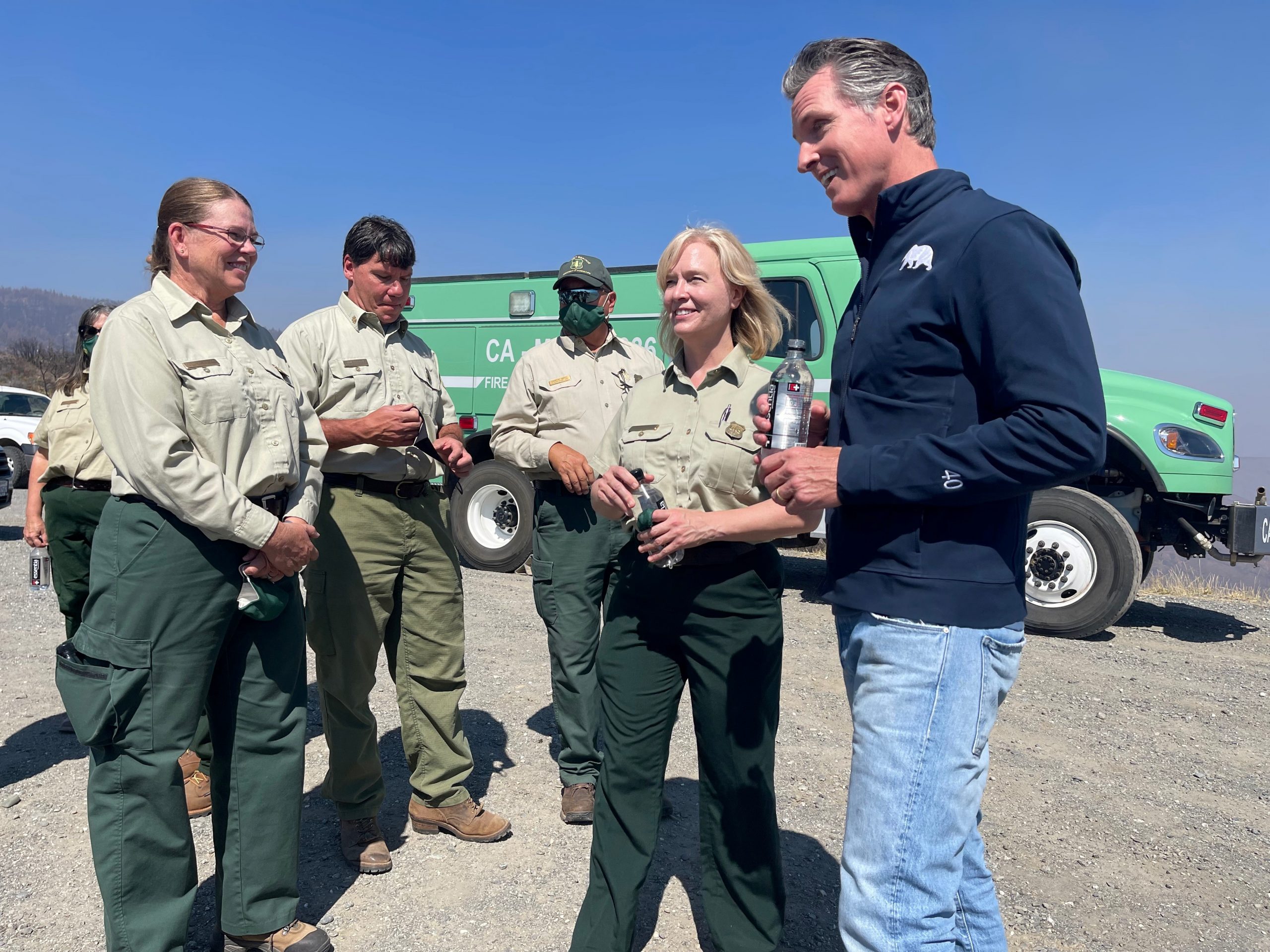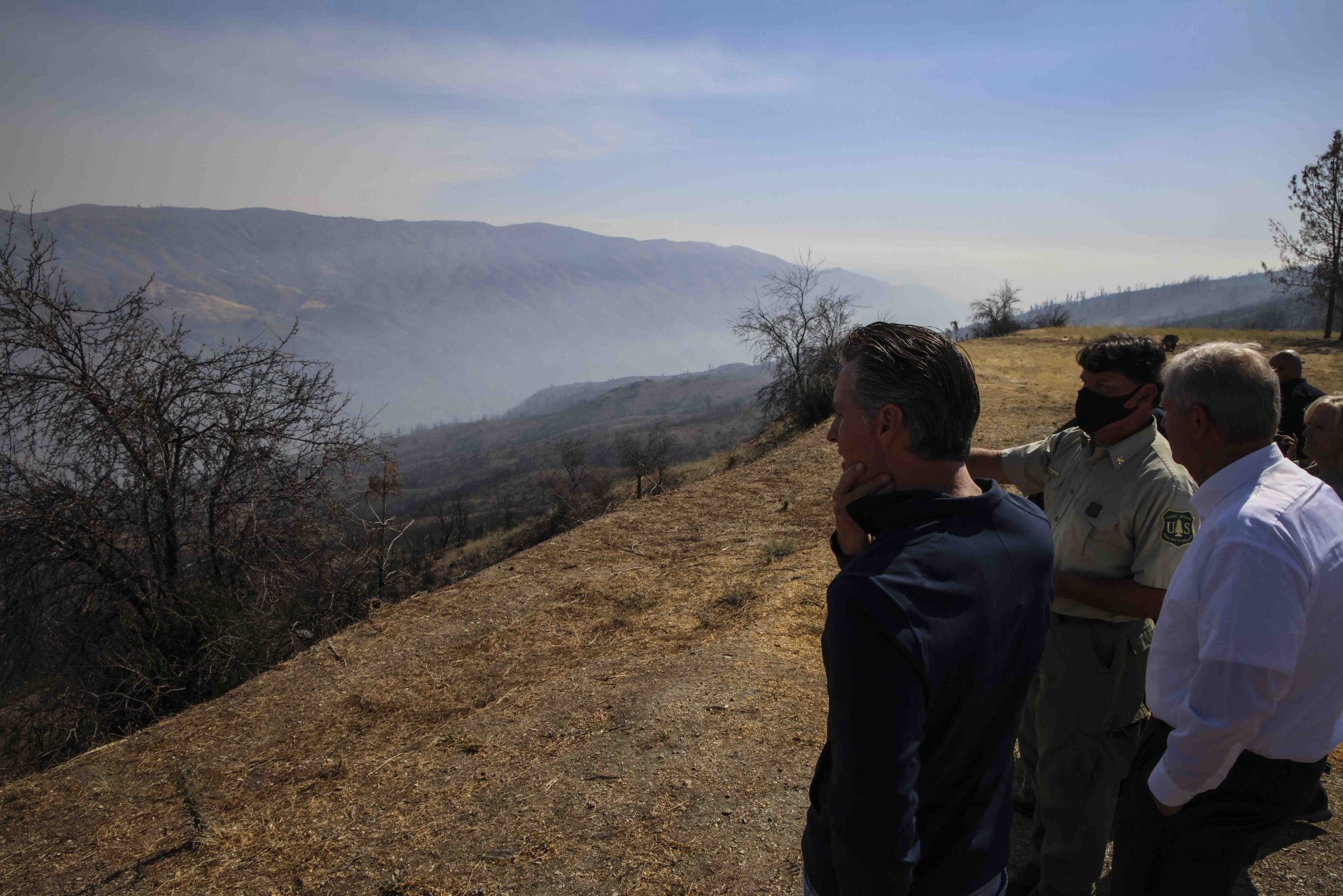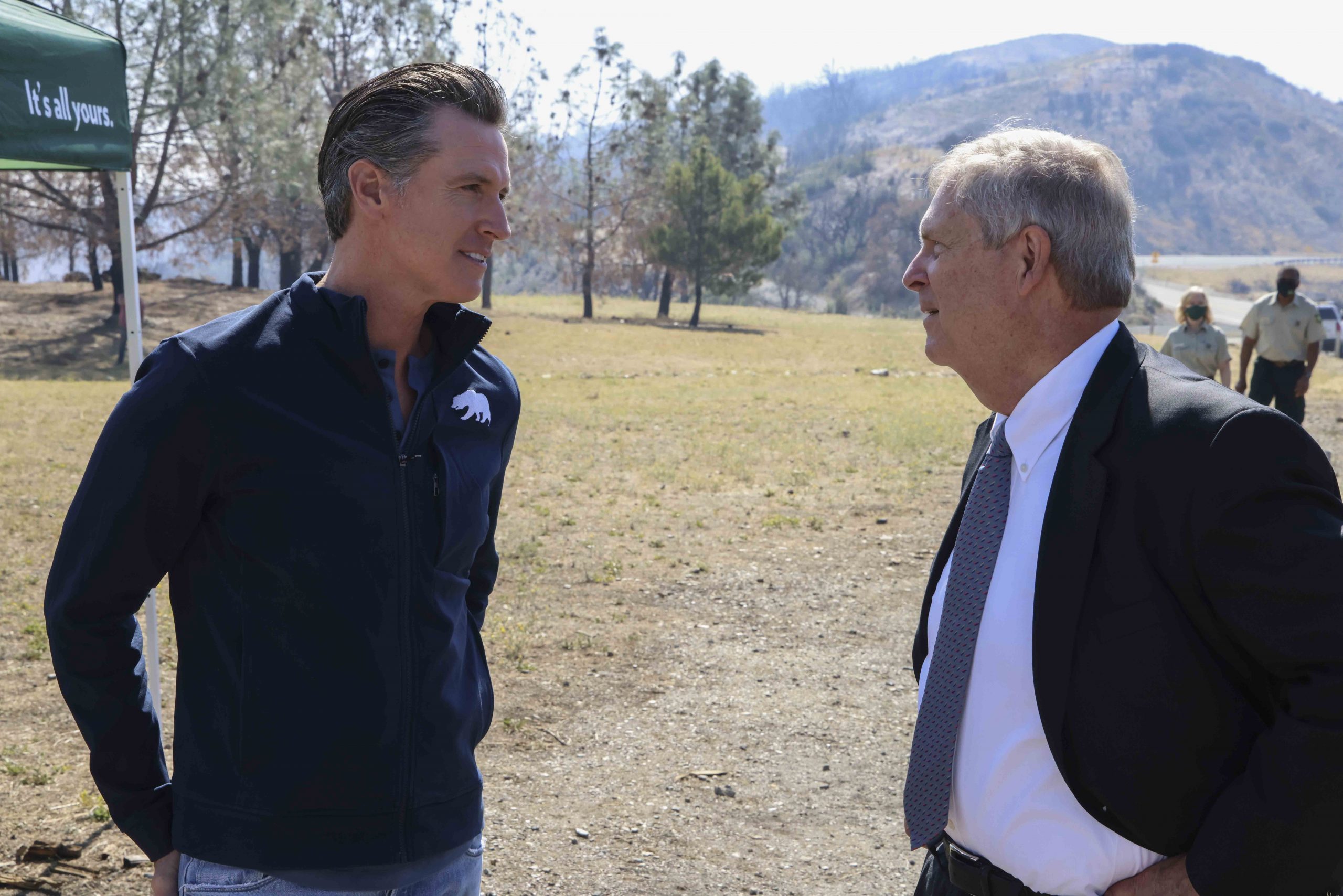ELK CREEK – On the heels of a White House wildfire briefing with Western state governors last week, Governor Gavin Newsom today joined U.S. Agriculture Secretary Tom Vilsack and U.S. Forest Service Fire Chief Randy Moore at the burn scar of the 2020 August Complex to discuss state and federal collaboration on wildfire response, fuels management and other efforts to build wildfire resilience amid extreme climate impacts across the West.
Chief Moore earlier this week issued a memo to all regional foresters temporarily halting “managed fire” as a suppression strategy until further notice, and prioritizing fires that threaten communities and infrastructure. The action follows the Governor’s requests that federal wildfire suppression strategies be reassessed amid the extreme risk posed by current fire conditions, including in the discussion with President Biden and Vice President Harris last week. Governor Newsom has also called for federal investments to support additional firefighting personnel, aerial firefighting equipment and long-term access to satellite technology for early fire detection.
“California is fortunate to have strong federal partners committed to taking aggressive action to tackle the existential threat of catastrophic wildfires in the West driven by climate change impacts,” said Governor Newsom. “Together, we’re scaling up our vital work to improve the health of forests and landscapes across multiple ownerships and jurisdictions and ensuring we prioritize efforts in communities that face the greatest risks.”



Governor Newsom and Secretary Vilsack discuss state-federal wildfire resilience efforts during August Complex site visit.
The August Complex was the largest wildfire in California’s recorded history, burning more than a million acres in seven counties. The Governor alongside Secretary Vilsack, who serves as co-chair of the Biden Administration’s Wildfire Resilience Interagency Working Group and Interagency Drought Relief Working Group, Chief Moore, USFS Regional Forester for the Pacific Southwest Region Jennifer Eberlien and CAL FIRE Director Thom Porter today surveyed damage from the fire and joined a briefing at the Alder Springs U.S. Forest Service Station in Elk Creek. The briefing underscored the role of fuels management efforts across state and federal jurisdictions in helping to protect the area around Alder Springs during the August Complex last year.
Joint state-federal management is crucial to California’s overall forest health and wildfire resilience, as the federal government owns 57 percent of California’s forestlands while the state owns 3 percent. Last year, the Newsom Administration and the U.S. Forest Service announced a shared stewardship agreement under which they are working to treat one million acres of forest and wildland annually to reduce the risk of catastrophic wildfire. The Governor earlier this year launched an expanded and refocused Wildfire and Forest Resilience Task Force, with federal, local and tribal leaders, to deliver on key commitments in the Governor’s Wildfire and Forest Resilience Action Plan. The Plan outlines a path to increasing the pace and scale of land management, including through more prescribed burns.
Governor Newsom in partnership with the Legislature has invested $2.2 billion to build wildfire resiliency and advance emergency response as part of the California Comeback Plan, the largest such investment in state history. The funding supports additional firefighting crews, new firefighting equipment and expanded land and forest management efforts and builds on the Governor’s previous budget investments in emergency management and executive actions to help combat catastrophic wildfires. Additionally, Governor Newsom surged CAL FIRE’s firefighting ranks in March by authorizing the early hire of 1,399 additional firefighters and this month supplemented the department’s capacities with 12 additional aircraft to fight this year’s wildfires.
###
